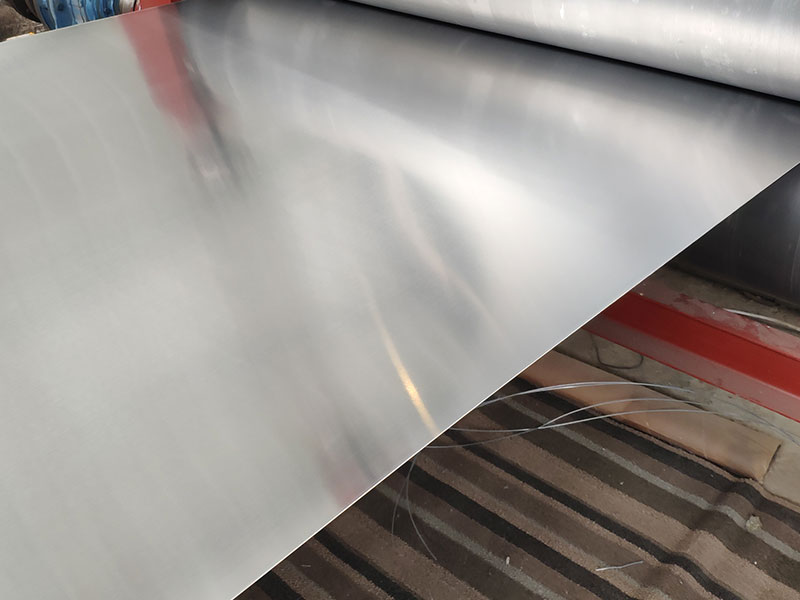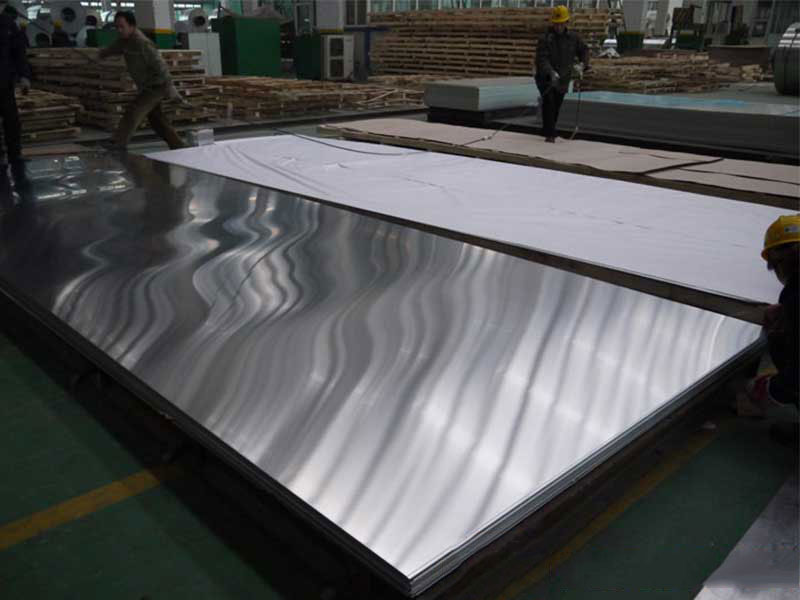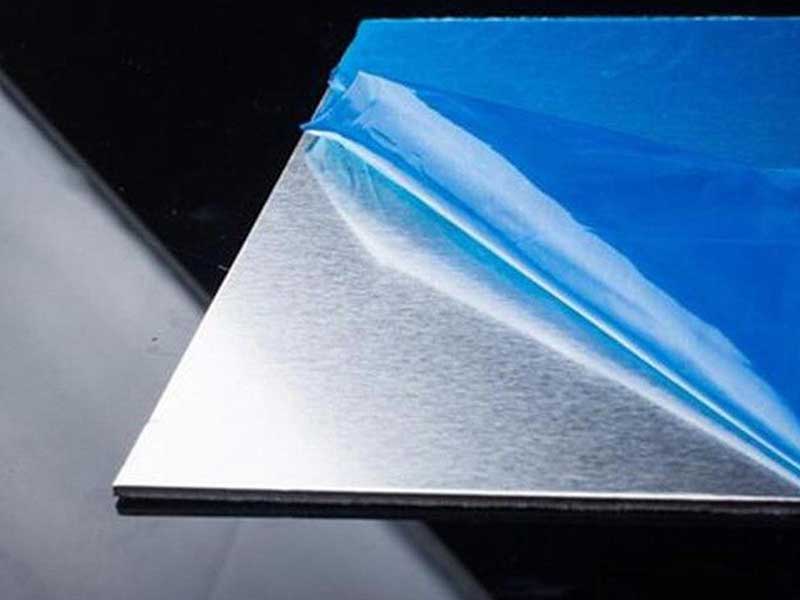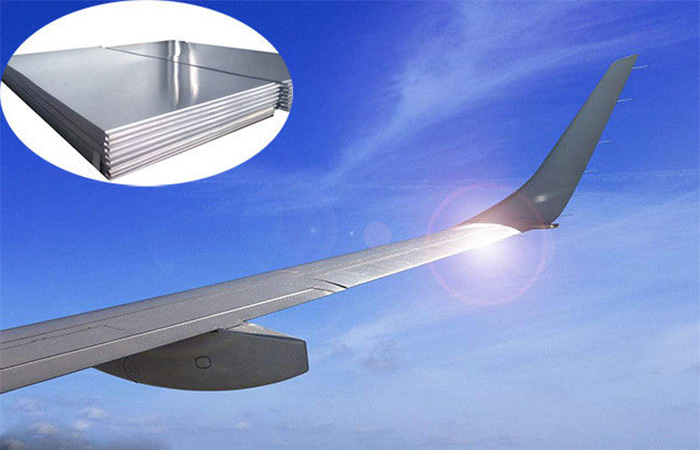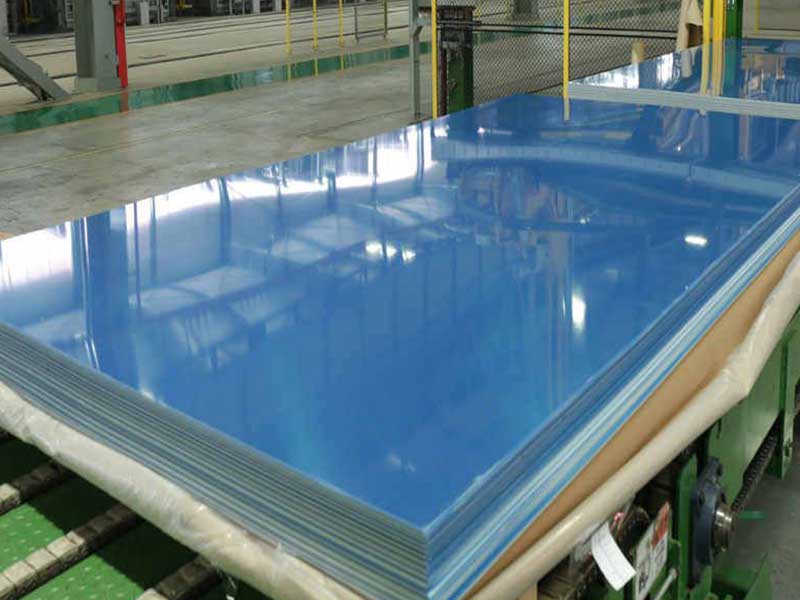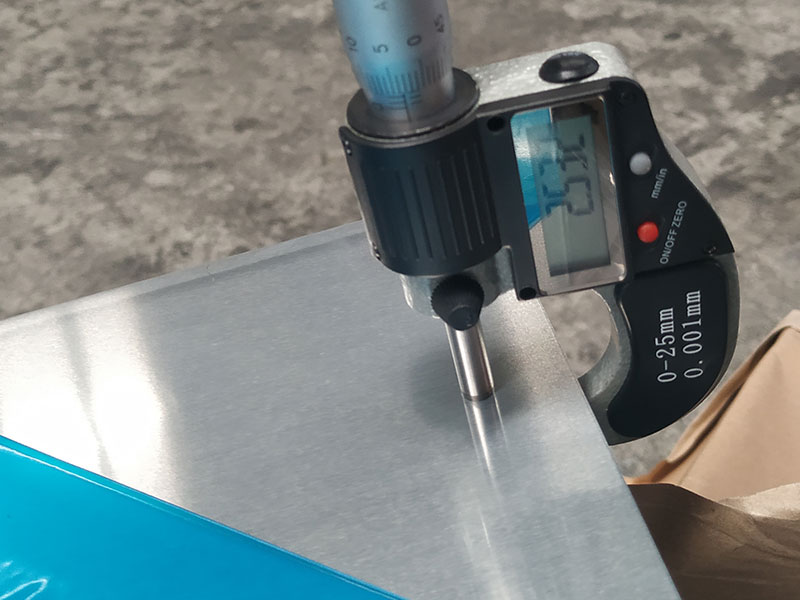7075 aluminum block
7075 aluminum block is a high-strength, heat-treatable aluminum alloy block widely used in demanding structural, aerospace, military, and high-performance engineering applications. Known for its exceptional strength-to-weight ratio, good fatigue resistance, and machinability, 7075 blocks are often selected when high mechanical performance and dimensional stability are required.
7075 aluminum block is a high-strength, heat-treatable aluminum alloy ideal for aerospace, defense, and high-performance engineering. It offers excellent tensile strength, good fatigue resistance, and machinability. Typical tempers: T6 and T73. Common uses: aircraft fittings, gears, molds, structural components, and tooling. Available in various sizes with tight tolerances and inspected to ensure mechanical and chemical standards.
features
- High tensile strength comparable to some steels while retaining aluminum's low density.
- Excellent strength-to-weight ratio — suitable for weight-critical structures.
- Good fatigue resistance, especially in over-aged tempers (T73, T76).
- Heat-treatable (solution heat treatment + artificial aging) to achieve peak strength (T6).
- Good machinability in the annealed and peak-aged conditions.
- Reasonable corrosion resistance for high-strength aluminum when coated or treated; not as corrosion resistant as 6xxx-series alloys.
- Weldability is limited; welding generally reduces mechanical properties significantly — welding is usually avoided or requires special processes.
- Available as solid blocks, billets, or forging blanks in a range of sizes and dimensional tolerances.
Typical applications
- Aerospace structural parts: wing spars, fuselage frames, bulkheads, and structural fittings.
- Defense and military hardware: weapon mounts, receiver blocks, missile components.
- High-performance automotive components and racing parts.
- Precision machinery: gears, shafts, spindles, and jigs.
- Tooling and molds where high strength and stiffness are needed.
- Marine components where strength and weight savings are critical (with proper corrosion protection).
- Prototype and CNC machined parts for R&D and specialized equipment.
- Alloy designation: 7075 (UNS A97075)
- Alloy group: 7xxx series (Al-Zn-Mg-Cu)
- Typical primary alloying elements: Zinc (Zn), Magnesium (Mg), Copper (Cu)
- Characteristic: heat-treatable, high-strength Al-Zn-Mg-Cu alloy
Chemical composition (typical, wt%)
| Element | Typical Range (%) |
|---|---|
| Al | Balance |
| Zn | 5.1 – 6.1 |
| Mg | 2.1 – 2.9 |
| Cu | 1.2 – 2.0 |
| Cr | 0.18 – 0.28 |
| Si | ≤ 0.4 |
| Fe | ≤ 0.5 |
| Mn | ≤ 0.3 |
| Ti | ≤ 0.2 |
| Other (each) | ≤ 0.05 |
| Other (total) | ≤ 0.15 |
(Note: Composition ranges may vary slightly by standard and mill specification. Always refer to the supplier’s material certificate.)
Mechanical properties (typical by temper)
| Property | T6 (peak-aged) | T73 (over-aged) | O (annealed) |
|---|---|---|---|
| Tensile strength (Rm) | 540 – 570 MPa | 480 – 520 MPa | 205 – 250 MPa |
| Yield strength (Rp0.2) | 470 – 500 MPa | 420 – 450 MPa | 110 – 150 MPa |
| Elongation (A%) | 7 – 11% | 8 – 12% | 22 – 30% |
| Brinell hardness (HB) | 150 – 170 | 130 – 145 | 35 – 55 |
| Fatigue strength (50% survival) | ~120 – 160 MPa* | Improved vs T6 | Lower |
*Fatigue strength depends strongly on surface finish, size, and environment.
Temper designations and heat treatment
- T6: Solution heat-treated and artificially aged to peak strength. Typical H/T: solution treat at ~470–480 °C, quench, then age at ~120–160 °C.
- T73: Solution heat-treated and over-aged for improved stress corrosion resistance and better fatigue performance. Typical aging cycles vary; often multiple steps or higher aging temperature than T6.
- T76: Controlled over-aging to balance SCC resistance and strength.
- O: Annealed (softest condition), used for forming or machining ease but much lower strength.
Note: Exact temperatures and times depend on section size and supplier practice. Blocks are usually supplied in T6 or T73 for structural use.
Physical properties
| Property | Typical Value |
|---|---|
| Density | 2.81 g/cm³ (approx.) |
| Melting range | ~477–635 °C (solidus/liquidus vary with composition) |
| Thermal conductivity | ~130 W/(m·K) (varies with temper and direction) |
| Electrical resistivity | ~0.042 µΩ·m |
| Modulus of elasticity | ~71 GPa |
| Poisson's ratio | ~0.33 |
Machining and fabrication
- Machinability: Good for a high-strength alloy; best practice is to machine in softer tempers where possible, then age to final temper if allowable. Use sharp tooling and rigid setups due to high strength and work-hardening tendency.
- Cutting tools: Carbide tools recommended for productivity and tool life. Use appropriate feeds and speeds, and ample coolant.
- Drilling/tapping: Pre-drilling with sufficient clearance, peck drilling recommended for deep holes.
- Welding: Generally not recommended for structural 7075 — welds typically lose most strength and may be prone to cracking. If welding is necessary, specialized techniques (e.g., electron beam, friction stir welding) and post-weld heat treatment may be required, and performance should be validated.
- Surface treatments: Anodizing, chromate conversion coating (Alodine), painting, epoxy coatings, and mechanical polishing are common. Note that anodizing may affect fatigue performance slightly.
- Stress relieving: Relieving internal stress by appropriate post-machining thermal treatment can be beneficial for large, complex blocks.
Size, tolerances, and availability
- Blocks are produced in a range of sizes (small billets for CNC parts up to large rectangular blocks and forging blanks). Common supplier sizes vary — custom sizes and tight tolerances are often available on request.
- Typical dimensional tolerances depend on supplier and process; precision ground or milled blocks can be supplied to tight flatness and parallelism specifications.
- Surface conditions: As-milled, sawed, or precision-ground finishes are commonly available. Specify desired finish and machining allowances when ordering.
Quality, inspection, and standards
- Relevant standards: ASTM B209 (sheets/plates), ASTM B221 (extrusions), AMS4037/AMS4038 (7075 alloys by specific aerospace specs), and various EN/ISO and national standards depending on region and product form.
- Certification: Material test reports (MTR) / mill test certificates (chemical and mechanical), hardness tests, and non-destructive testing (NDT) such as ultrasonic or dye-penetrant inspection can be provided per agreement.
- Traceability: Full material traceability to heats and batch numbers is standard in aerospace and defense supply chains.
Corrosion resistance and protection
- 7075 is not as corrosion-resistant as 5xxx or 6xxx series aluminum alloys. It is susceptible to stress corrosion cracking (SCC) in the peak-aged condition (T6).
- Over-aged tempers (T73, T76) improve resistance to SCC at the cost of some strength.
- Use of protective coatings (anodizing, conversion coatings, painting) and design practices (avoidance of tight-crevice areas, good drainage) mitigates corrosion risk.
- For harsh marine or chemically aggressive environments, additional protective measures or a different alloy may be preferable.
Handling and storage
- Store blocks in clean, dry conditions to avoid contamination and surface degradation.
- Protect machined surfaces and corners during transport; use wooden cradle or polymer films to avoid metal-to-metal contact.
- Avoid localized heating (welding, grinding sparks) that could affect temper in specific areas.
Selection guidance
- Choose 7075 block when maximum strength and stiffness per weight are critical and when parts will be predominantly loaded in static or cyclic conditions managed for fatigue.
- Prefer T6 when peak strength is necessary. Choose T73/T76 if stress corrosion resistance and improved fatigue life are required.
- If extensive welding is required in the part design, consider alternative alloys (e.g., 6061, 6082) that tolerate welding better.
- Discuss finish, tolerances, and certification needs with the supplier up front to ensure delivered blocks meet manufacturing requirements.
Typical supplier specifications checklist
- Alloy and temper (e.g., 7075-T6 or 7075-T73)
- Block size (length × width × height) and geometric tolerances
- Surface finish (sawn, milled, ground)
- Mechanical properties (Rm, Rp0.2, elongation)
- Chemical composition per standard
- Heat treatment record and aging cycle (if required)
- NDT and inspection requirements
- Material test report (MTR) and traceability
- Any special requirements (stress-relieved machining, pre-drilled features, protective coatings)


